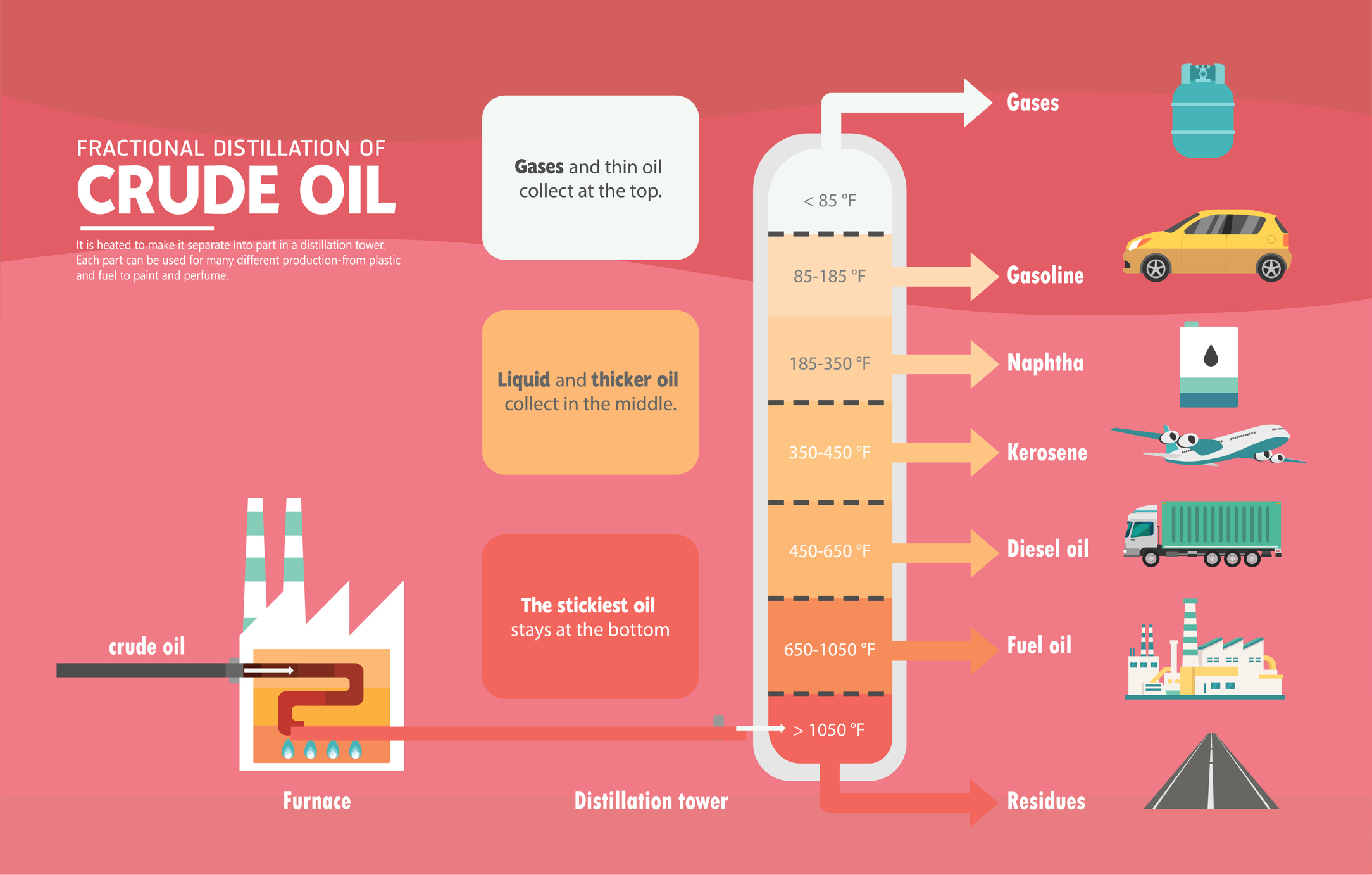What is the Fractional Distillation Process of Oil in Nigeria?
What is the Fractional Distillation Process of Oil in Nigeria?
The fractional distillation process is the process of removing specific components in a mixture. There are different methods to do this separation, like the vacuum distillation, steam distillation, and column distillation. In this article, we’ll look at the different types of fractional distillation processes and how they work with oil in Nigeria. Fractional distillation is used to separate different components in a mixture. For example, when we have crude oil as an input, we can further separate it into various fractions such as kerosene, naphtha, gas oils and lubricating oils. Each of these fractions has unique functionalities and applications. The most common type of fractional distillation is column or vacuum distillation. Let’s take a deeper look at the details of each type of fractional distillation processes for oil in Nigeria.
What is the Vacuum Distillation Process in Nigeria?
The vacuum distillation process is used to remove liquids from the mixture. In this process, the mixture is heated, and steam is produced. The vapor pressure of the liquids in the mixture decreases with a drop in temperature and the vapor pressure of the liquids decreases. The vapor pressure of the liquids decreases at a temperature when there is no change in temperature. In vacuum distillation, the vapor pressure is negative, so the pressure chamber is cooled to a pressure when the vapor pressure of the liquids is zero. When the vapor pressure is zero, the pressure chamber is filled with steam. The mixture is then separated out into the liquid and the vapor. The temperature of the mixture is controlled to ensure that the pressure chamber is filled with steam and the mixture is separated into the vapor and liquid.
What is the Steam Distillation Process in Nigeria?
The steam distillation process is used to remove both liquids and vapors from the mixture. In this process, the vapors are condensed. The mixture is heated to produce steam and the mixture is cooled to form condensed water and liquid. The mixture is then separated into the condensed water and the liquid. The temperature of the mixture is controlled to ensure that the mixture is cooled to form condensed water and separated into the condensed water and the liquid.
What is the Column Distillation Process in Nigeria?
The column distillation process is used to separate the mixture into liquids and vapors. In this process, the mixture is heated and the vapors are removed from the mixture. The mixture is then cooled to form a liquid. The mixture is then separated into the liquid and the vapor. The temperature of the mixture is controlled to ensure that the mixture is cooled to form a liquid and separated into the liquid and the vapor.
Fractional Distillation of Oil Conclusion
Fractional distillation is the process of separating different components in a mixture. There are different types of fractional distillation processes, and the most common type is column distillation. Column distillation is used to separate the mixture into liquids and vapors. This article explains what the fractional distillation process is, details of the different types of fractional distillation processes, and how they work with oil in Nigeria.








LEAVE A COMMENT
You must be logged in to post a comment.